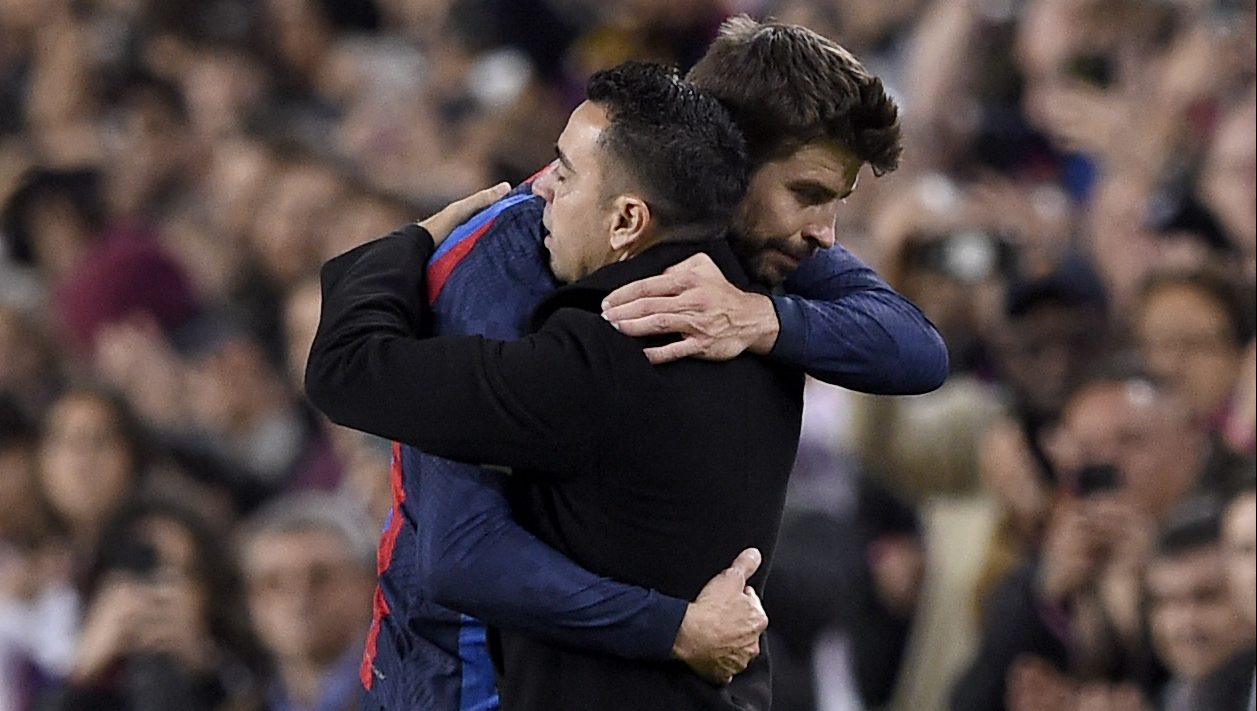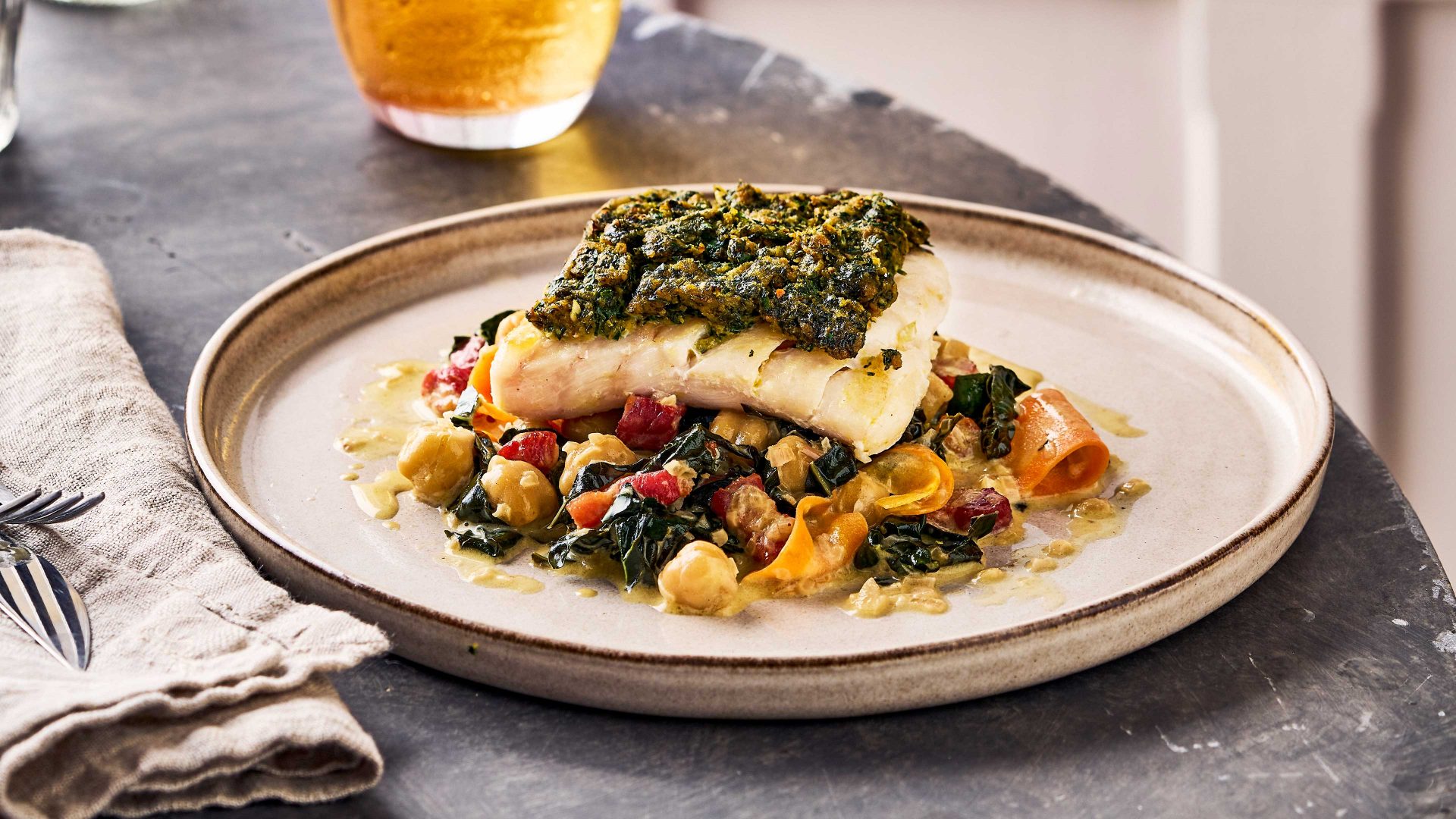If there is anything more soul-destroying than recognising your own decline as an athlete, it must be managing the decline of a teammate with whom you have shared a lifetime.
The embrace between Gerard Piqué and Xavi Hernández in front of 92,605 Barcelona fans on Saturday was as much a tear-jerker as the recent retirement of tennis ace Roger Federer. When their time is up, grown men do cry.
As players, Xavi and Piqué shared everything there is to share. They were born in Barcelona, raised under Johan Cruyff’s principles at the La Masia academy and shared, with Lionel Messi, Andrés Iniesta and Sergio Busquets, more than 500 games. These provided not simply the mellifluous flow of their football but trophies too; three trebles of La Liga, the Copa del Rey, and the Champions League.
They were brothers bound by the famous Mes Que Un Club (More Than A Club) credo. And brothers not simply at Barça, but also in the Spanish sides that won the World Cup and the European Championship by knitting together Catalan and Madrid rivals.
Yet the abrupt end to Piqué’s playing career, announced by him on a video he put together last Thursday showing his life literally from the cradle, shocked even Xavi, now the head coach, and Joan Laporta, the club president.
Behind the obligatory warm words, there were hints of collusion forcing the big defender’s sudden departure. The club, as everyone knows, is in a financial black hole. Laporta inherited a billion euro deficit when he returned as president last year and, either through his own words or through executives sent out to speak for him, Messi and now Piqué were made to feel like robbers of their own club because of the tens of millions on their contracts.
Messi left, again tearfully, to join the infinite payroll of Paris Saint-Germain. Piqué left and did what Laporta’s henchmen had called for, sacrificing over £38m he was entitled to had he played out his contract.
He doesn’t need Barcelona’s money. He is the son of a Catalan businessman and his mother is director of a spinal injuries hospital. Piqué earns more than them. He runs his own business in conjunction with a Japanese billionaire who Piqué persuaded years ago to become the main sponsor of FC Barcelona, replacing Qatar Airways.
Piqué is not only the chairman of that board, he is the ideas man, the motivator, the persuader who has revamped the tired century-old Davis Cup tennis format, taken over a fifth division Spanish football club, FC Andorra, and lifted it rapidly to the second division. He also prompted the Spanish football federation to relocate its annual curtain raiser between the league champions and cup winners to Saudi Arabia.
Besides all that, Piqué is currently carrying out the main parental responsibility for his two boys – Milan and Sasha, aged nine and seven – after the breakup of his 11-year relationship with the Colombia singer Shakira.
They met in the run-up to the 2010 World Cup in South Africa. And maybe their parting this year also emanates from the instability Piqué began to feel in his playing career. Xavi, 42, the former teammate who was called home after four years earning a fortune and learning the managerial role with Al Sadd in Qatar, admits the hardest duty he has had in management was telling Piqué at the start of this season that his playing opportunities would be limited.
But, as the season unfolded, as the president’s men kept talking about salary sacrifice, five players seemed to be preferred to the 35-year-old who served through 616 games and 30 major trophies.
After the end, it was not the player, the coach or even the president who spoke the absolute truth. It was the man he sought out in that vast crowd at the stadium on Saturday night.
Amador Bernabéu, his maternal grandfather, had been a vice-president and did some coaching at the academy. He enrolled his grandson as a culé (a club member) the day Gerard was born.
“Huge emotion and great sadness,” the grandad summed up on Cadena SER radio. “Positive for everything Gerard has done, which is a lot, but an ending we did not expect. Things sometimes are forced. He leaves in the spur of the moment due to his personality. He is not a man to sit on the bench.
“Whatever is said, he has shown up to the last minute that he can play. The whole family are culés all our lives. Barça is our life and our history. People are one thing and the club is another.”
If you met the grandfather, as I have, you know that doing the right thing for the club is in the family veins. Gerard Piqué was never a man for the bench, never one to take the money and not be allowed to run, to compete.
His career was reflected in the name “Piquenbauer”, a defender perhaps not blessed with athletic pace but, in the manner of the great German Franz Beckenbauer, he instinctively strides out of the back line to create openings upfield.
“In life you get old,” Piqué told the 92,000 after his last game. “There are things where loving them is difficult when you have to leave, to let go. I’m convinced I will come back because I was born here and I will die here.”
The declared aim which his business life is a preparation for is to return one day as the leader, el president. I do hope his grandfather lives to see it.




